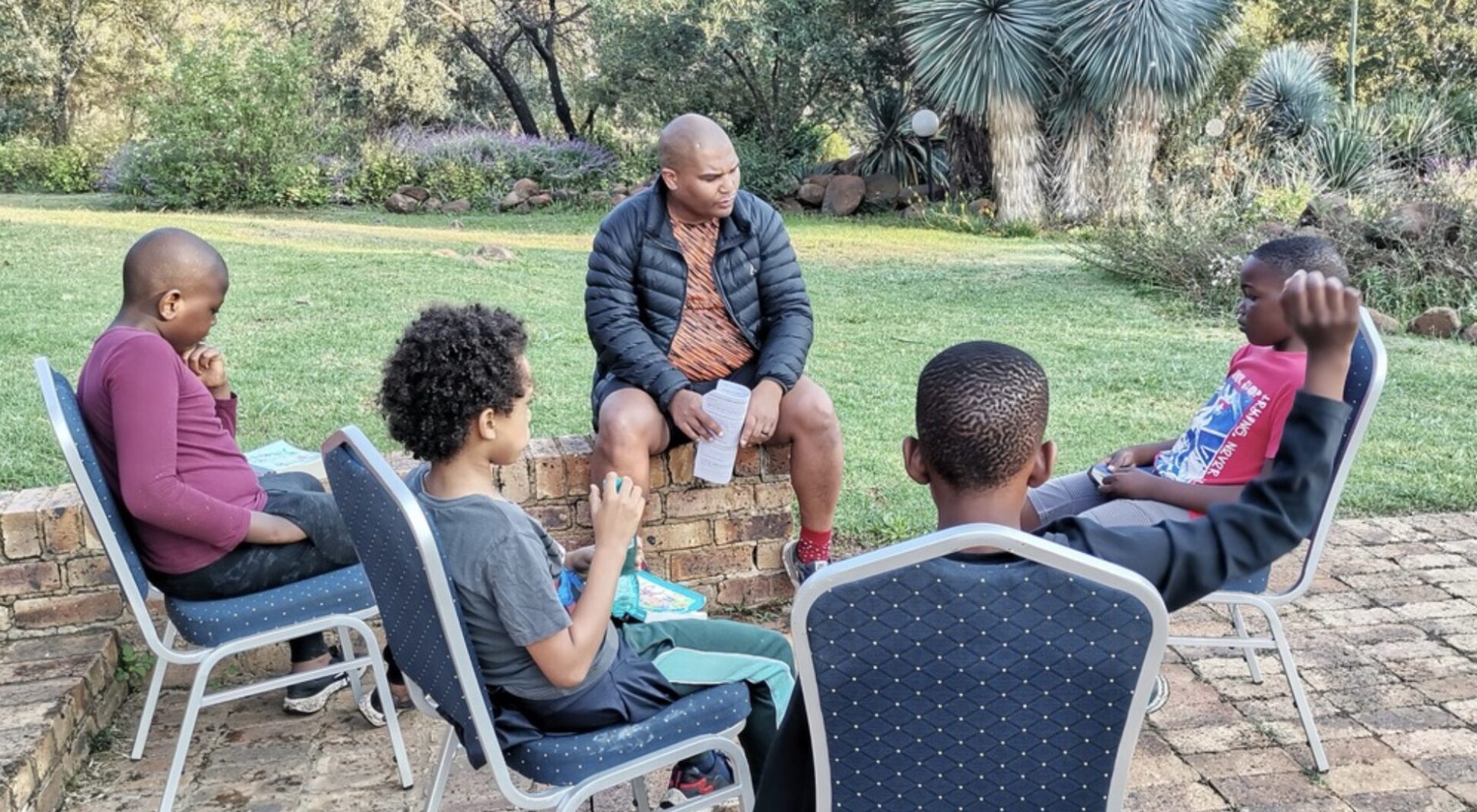Non-profit, The Character Company, is on a mission to heal a big part of South Africa’s trauma with volunteers who step up as positive male figures to fatherless boys.
South Africa (14 October 2024)—The trauma of the individual can become the trauma of a country. It might seem like a big statement, but when you get down to the nuts and bolts and unpack why so many of South Africa’s challenges exist, you start to see a common thread. The good news is that many threads don’t have to continue in perpetuity. And with non-profits like The Character Company stepping in to heal the gaping wounds in our society, hope is high.
A big part of South Africa’s trauma stems from fatherless boys and those without positive male role models. Especially in underprivileged communities, these boys can grow up into adults who perpetuate cycles of abuse, poverty and gangsterism, largely because of learned behaviours.
In fact, 70% of South African children grow up in single-parent homes, as The Character Company states. It’s estimated that 4 out of 5 boys with absent fathers don’t have even one other consistent, positive male role model in their lives.
These circumstances can permit chronic trauma. Because trauma is not a cookie-cutter experience, it has to be understood relatively.
Jaco van Schalkwyk, founder of the Character Company, explains:
“We must understand trauma is not just physical hurt. Trauma can also be created by our experiences in life that are not necessarily violent or abusive. The lack of a positive male role model is such a devastating experience for a young boy. It’s a trauma that goes much deeper than sadness at missing out on playing rugby with your dad.”
Jaco adds that a boy’s identity and sense of self are positively shaped by having a father or male caregiver. This is someone who “pays attention, makes time and serves as a guide for him as he grows.”
“Such a boy needs no proof, he just knows that he is ‘good enough’ and that he is someone who his father believes is worth standing up for. By contrast, a boy with an absent father constantly wonders: ‘What is wrong with me?’ He is constantly churning about and seeking answers as to why he is not ‘good enough’ and why he isn’t worth making time for. Psychologically, this is an ongoing traumatic hurt that impacts on boys’ development, behaviour and social relationships. Without intervention, it shapes the man he will grow up to be.”
Depression, aggression, substance abuse, bullying and both poor performance as well as over-performance are all ‘side effects’ that can follow.

Dr Joan van Niekerk, Child Rights and Protection consultant at organisation Jelly Beanz, explains that the absent father is a form of neglect.
“The impact on boys results in a lack of guidance on social relationships and on how to use their physical strength to protect others and not to harm and or hurt. Boys with absent fathers and without positive role models then take gender role guidance from other sources such as television, social media and, if they have access to them, gang members.”
When it comes down to healing what is often a generational cycle, the goal is to instil traits associated with positive masculinity.

The Character Company focuses on balancing consistent social elements of positive male mentorship with healthy experiences to create a social fatherhood model.
“Our programme of consistent mentoring and healthy, outdoor activities is a model of social father hood that we are implementing so that boys with absent fathers have the much-needed opportunity to engage with male role models who are intentional, committed and accountable to them.”
There are five values imperative to the organisation, namely:
- Respect
- Honesty
- Self-discipline
- Courage
- Kindness
Boys are also provided safe spaces to talk about their feelings and develop emotional intelligence and empathy.
Jaco explains that their work is not a quick fix but a committed, long-term process.
“While the extent of fatherlessness in our country seems overwhelming, there’s so much opportunity for South African men to become part of the solution and contribute to healing the generation now, and those to come. To walk this journey over time with a boy is enriching for our mentors and we hope to see many more South African men step up to the challenge of becoming intentional, committed and accountable social fathers.”
You can learn more about The Character Company here and more about becoming a mentor here.

